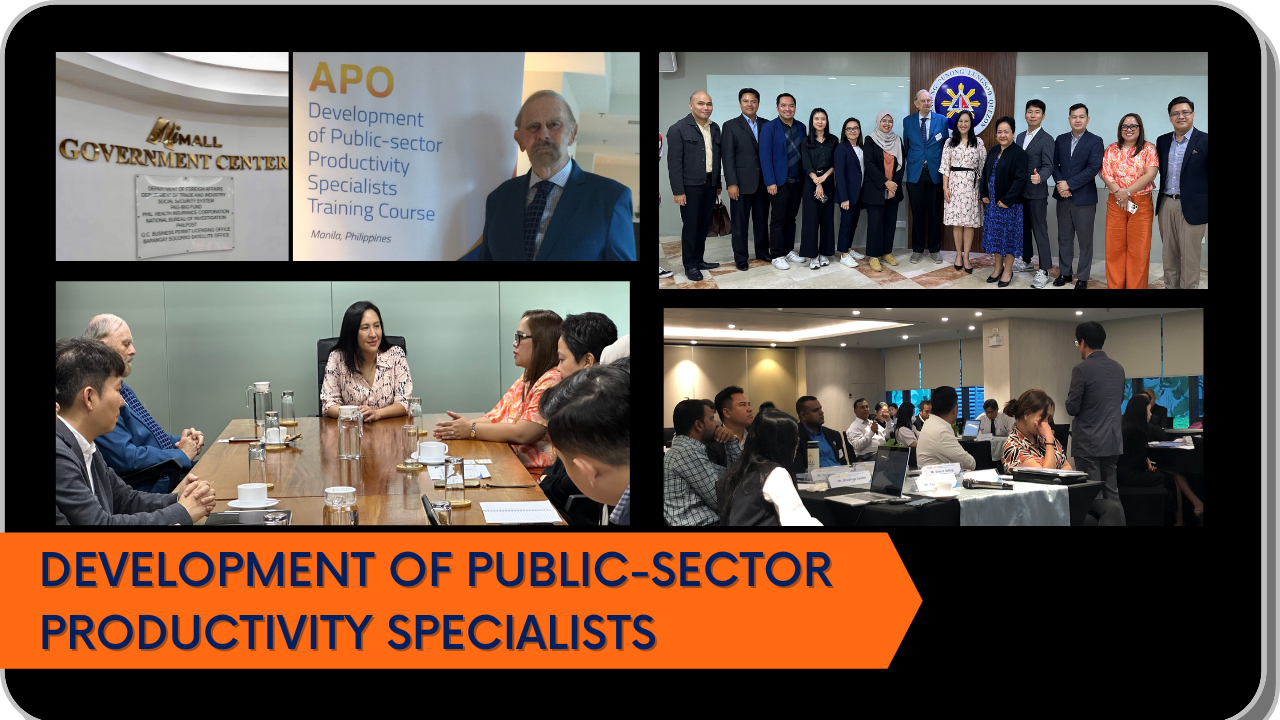
Select Page

Governments worldwide are embracing reforms to optimize resource utilization, enhance accountability, and increase transparency. Technological advances, while instrumental in improving public service delivery, highlight the necessity to upskill public-sector professionals and prioritize continuous improvement. To foster a high-performance public-sector culture through comprehensive training, the Development Academy of the Philippines (DAP) organized a face-to-face course on Development of Public-sector Productivity Specialists, 6–17 November in Manila. It was attended by 22 participants from 14 APO economies, including policymakers, officials, representatives of public-sector organizations, and NPO professionals involved in public-sector training and consultancy.
The two-week course was facilitated by three resource persons from Canada, the ROK, and the Philippines. It provided an overview of public-sector productivity in APO members, the APO Public-sector Productivity Framework, e-government, and tools for improving organizational productivity, citizen-centered service, and foresight. Participants also gained insights into regulatory reform, performance management, approaches to measuring public-sector productivity, change management, and the APO certification process for public-sector productivity specialists. The course included site visits to three public-sector organizations, Land Bank of the Philippines, Philippine Statistics Authority Region III, and Quezon City Government, providing practical insights into organizational productivity improvement.
As public-sector organizations grapple with increasing demand for high-quality services, the course addressed challenges related to accountability, customer orientation, and professional performance. By delving into diverse thematic areas affecting public-sector performance, participants learned how to meet citizens’ needs and elevate satisfaction with service delivery. The overall goal was to equip participants from different public-sector organizations with the knowledge and competencies essential for driving productivity growth while promoting a high-performance culture. It also contributed to developing and expanding pools of public-sector productivity specialists in APO member economies.